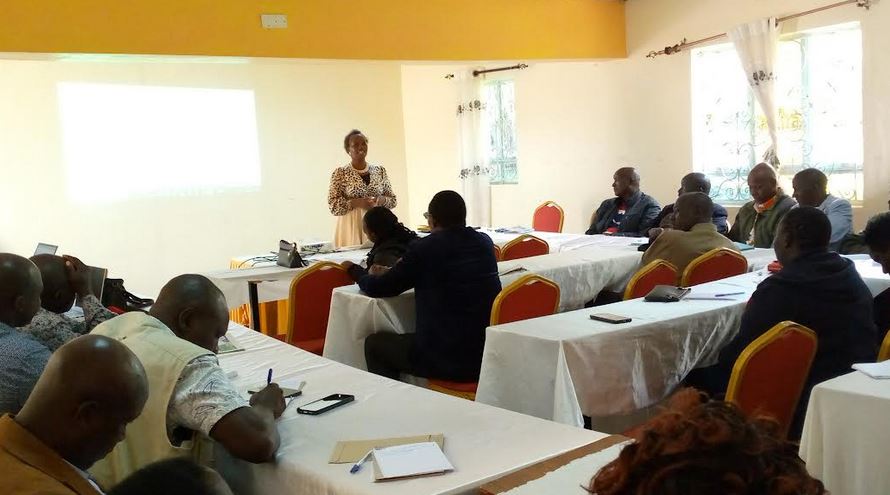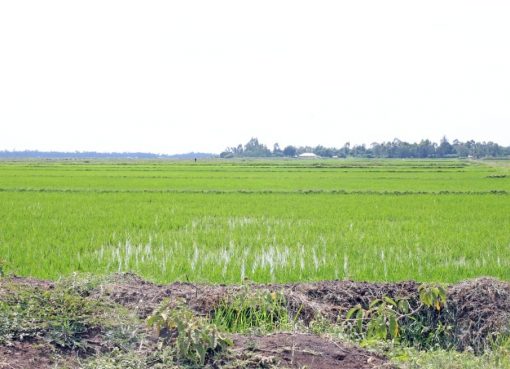Health stakeholders in West Pokot County are encouraged to collaborate in combating teenage pregnancies, Human Immune-Deficiency Virus (HIV) infections, and Gender-Based Violence (GBV), known as the ‘Triple Threat.’
Officials from the National Syndemic Diseases Control Council (NSDCC), Ministry of Health (MOH) West Pokot County, National Government Administration Officers (NGAO), and community gatekeepers were called to come together and give top priority to eradicating the ‘Triple Threat’ in their areas of operation.
During a meeting at Horizon Resort in Kapenguria town, the health stakeholders further discussed the critical nature of the ‘Triple Threat’ in the county and highlighted the need to eradicate sexual violence against women and girls.
The health stakeholders called upon government officials at both national and county levels, private sector entities, foundations, NGOs, and other organisations working for women’s rights to unite in the battle against violence targeting women and girls.
Speaking during the meeting, Nelly Achokor, the Aids and Sexually Transmitted Infections (STI) Coordinator and Gender-Based Violence (GBV) focal person for West Pokot County, elaborated on the Triple Threat faced by adolescents and young women aged between 10 and 19 and the need to end the vice.
She emphasised that the triple threat not only jeopardised the health and socio-economic well-being of girls and women, but also violated their fundamental rights, especially their right to receive education.
Ms. Achokor emphasised the importance of addressing this triple challenge, which hinders efforts to eliminate AIDS as a public health issue in the country.
She underscored that sexual violence could lead to both HIV transmission and pregnancy, and she noted that teenage pregnancy and sexual violence could result in enduring physical and mental health difficulties.
She further noted that adolescent pregnancy in some communities served as a proxy for child marriage and Female Genital Mutilation (FGM), both of which violated basic human rights and child rights.
She said that the total fertility rate for women in the county was 6.9 children per woman, which was higher than the national average of 3.4.
The health expert further disclosed that teenage pregnancy in West Pokot County stands at 36%, which is the second highest in the country.
She noted that over an 8-year period, West Pokot has witnessed a 7% increase in teenage pregnancy, rising from 29.4% in 2014 to 36.3% in 2022.
Ms. Achokor further revealed that within the county, there were 4144 people living with HIV, active on Antiretroviral Therapy (ART), and being managed in various ART sites.
She also informed health stakeholders that adolescents and young people (15–24 years old) contributed to 52% of all new HIV infections in West Pokot County.
She further informed members that a comprehensive campaign has been initiated to tackle the issues of HIV, teenage pregnancies, and gender-based violence in the county.
Ms. Achokor emphasised the need for a comprehensive strategy to combat the rise of new HIV infections, teenage pregnancies, and Gender Based Violence (GBV).
Moses Yatich, the coordinator for Trans Nzoia and West Pokot County for NSDCC, stressed the importance of National Government Administration Officers and community Gatekeepers in combating the triple threat menace in the community. He urged them to take a proactive role in safeguarding the rights of girls and women.
In her address, Kapenguria Division Assistant County Commissioner (ACC) Ruth Wachera, highlighted the link between violence against adolescent girls and young women and the increased risk of HIV infections and other sexually transmitted diseases.
She emphasised that gender-based violence and teenage pregnancies were indicators of the heightened risks of new HIV infections in the Nation.
ACC Wachera further explained that exposure to violence has detrimental effects on women’s overall well-being, including their mental, sexual, reproductive, social, and economic health.
ACC Wachera called upon local chiefs and health stakeholders to develop strategies to address the prevalence, severity, and predictors of violence against women and girls, while acknowledging its impact on their lives.
She emphasised that adolescent girls who have experienced violence have lower aspirations and faced obstacles in achieving their goals compared to those who have not encountered violence.
ACC Wachera stressed the importance of eliminating the ‘Triple Threat’ as it negatively affects school enrollment and performance.
Additionally, she emphasised that being exposed to violence has been associated with an increased risk of acquiring HIV infections from forced sexual encounters with infected individuals and hindered ability to negotiate safe sex practices.
ACC Wachera informed the administrators that they have been educated on how to effectively address these urgent challenges and urged them to take action.
She called upon government officials at both national and county levels, private sector entities, foundations, NGOs, and other organisations to unite in the battle against the triple threat.
By Anthony Melly



